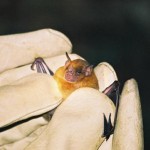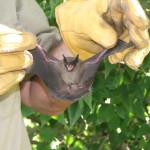 Of all the different ways to manage bat problems, one town in Australia is trying to discourage bats from roosting in neighborhoods by allowing residents to seriously trim back the trees lining city streets. The hope is they will deter the bats from living in the trees and encourage them to move to a more suitable location in the wild. Unfortunately, they may discover that the bats may end up moving into attics, chimneys, walls or eaves instead of seeking shelter in a more natural setting.
Of all the different ways to manage bat problems, one town in Australia is trying to discourage bats from roosting in neighborhoods by allowing residents to seriously trim back the trees lining city streets. The hope is they will deter the bats from living in the trees and encourage them to move to a more suitable location in the wild. Unfortunately, they may discover that the bats may end up moving into attics, chimneys, walls or eaves instead of seeking shelter in a more natural setting.
Bats aren’t the truly terrifying creatures that swarm around people’s heads or go for blood. But, their presence in our homes, apartments, office buildings, out buildings and industrial spaces aren’t good for them and it’s certainly not good for us. The mess they make with guano (or bat droppings) is smelly, foul, and attracts other vermin or bugs. They can carry ticks or mites that drop off and infest the area. They damage walls, soffits, eaves and other building materials, and leave a large greasy smudge around the areas where they access the building. And, yes, they are a common carrier of rabies. The problem is, their teeth are so small that a person may not even know they’ve been bitten. So, health officials strongly suggest you never touch a bat with your bare hands, and if a person wakes up in a room with a bat, they should seek medical attention immediately. Rabies is fatal unless managed properly, so don’t take a chance around bats.
